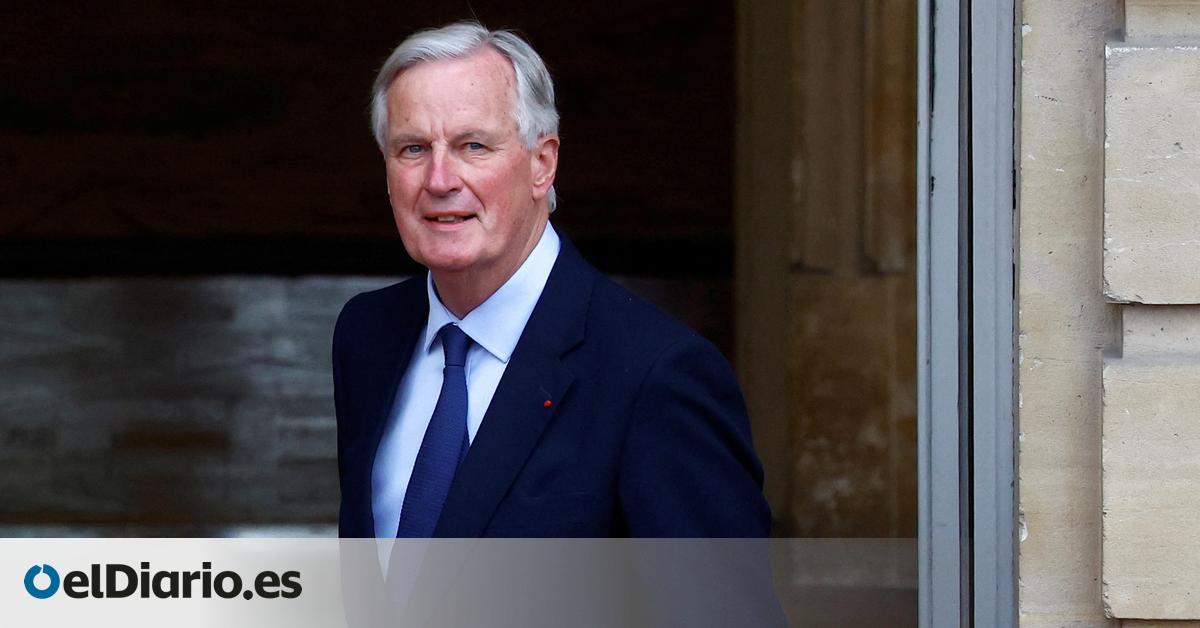
Eight weeks of suspense, negotiations, consultations and speculation have come to an end. French President Emmanuel Macron has appointed conservative Michel Barnier, a former minister, European commissioner and Brexit negotiator, as prime minister following the second round of legislative elections on 7 July which left a fragmented National Assembly.
His appointment was announced on Thursday, minutes after he left a private meeting with Macron at the Elysée Palace. “The President of the Republic has appointed Michel Barnier as Prime Minister. He has entrusted him with the formation of a united government in the service of the country and the French people,” the presidency said in a statement. “This appointment follows an unprecedented cycle of consultations during which, in accordance with his constitutional duty, the President has ensured that the Prime Minister and the incoming government meet the conditions to be as stable as possible and to give themselves the opportunity to bring together the greatest number of people.”
Barnier took office this afternoon at the Matignon Palace, the official residence of the head of government. He replaces Gabriel Attal, who took over as prime minister last January at the age of 34 and was acting. He gave his first speech as prime minister alongside him, in which he said that France is “in a serious moment”. “We will have to tell the truth and I will tell the truth”, said Barnier. “There will also be changes and ruptures. Finally, we will need a lot of listening and a lot of respect, between the government and Parliament, towards all political forces”. Among his priorities, he mentioned “access to public services” as well as “security in everyday life, control of immigration, work and the standard of living of the French”.
Barnier, 73, is a veteran politician and member of the right-wing Les Républiques party. His most recent post was as European negotiator for Brexit between 2016 and 2021, after having served twice as European Commissioner for Internal Market and Regional Policy. He was Foreign Minister under Jacques Chirac, and Minister of Agriculture under Nicolas Sarkozy at the Elysée Palace, and before that he had been Minister of the Environment and Minister of European Affairs. He has also been a member of the European Parliament and a member of parliament and senator in France.
End of a two-month political sequence
The political sequence that led to the election of the new head of government began with the dissolution of the National Assembly and the calling of elections decided by President Emmanuel Macron, a few days after the European elections that gave victory to the extreme right. A personal decision by the head of state, taken in search of a “clarification” of the political landscape.
Following a lightning-fast campaign, the legislative elections placed the left-wing coalition New Popular Front (NFP) as the main political force in the Assembly (193 seats), ahead of Macron’s centrist coalition (166) and Marine Le Pen’s far-right coalition (142).
The peculiarity of the result of the legislative elections is that none of the three major blocs came close to an absolute majority of 289 deputies (out of a total of 577), a parliamentary fragmentation unprecedented in the current French political system accustomed to large majorities. After announcing a “political truce” during the Olympic Games, Macron began two weeks of consultations with the leaders of the various political parties, as well as several former presidents and prime ministers.

The Elysée said it was looking for a compromise candidate who would not be opposed by a majority of MPs and who could survive a possible vote of no confidence in parliament. The announcement by the centre-right parties that, in the event of a vote of no confidence, they would vote against any prime minister from the NFP was the argument used by Macron to refuse to name the candidate of the progressive parties, the economist Lucie Castets, despite her representing the coalition with the most seats.
Although Castets had proposed seeking parliamentary agreements outside the coalition, also offering a “more collaborative” working method for the National Assembly, the other political parties said they rejected the NFP programme, which included elements such as the cancellation of the pension reform or the increase in the minimum wage.
The president, who is responsible for appointing the prime minister without any constitutional deadlines or limits, has repeatedly declared his desire to build a new coalition – different from those presented in the elections – that would be grouped around his party, with the moderate right, socialists, environmentalists and communists, a proposal that would mean fracturing the New Popular Front in order to isolate the left-wing party France Insoumise.
Mélenchon: “It is an electoral theft”
The founder of France Insoumise, Jean-Luc Mélenchon, has harshly attacked Macron for appointing Barnier as prime minister and accused him of stealing the election. “It is an electoral theft,” said Mélenchon, after having recalled that Barnier comes from a party that came last among the major French political parties in the legislative elections in July, in which this right-wing party (won 47 deputies). Mélenchon has argued that he is a prime minister “who has nothing to do with the result of the elections” and has said that he does not believe for a moment that Barnier will find a majority in the National Assembly that supports “such a denial of democracy.” “It is the denial of the will of the French people,” he stressed.
The other parties on the left, which went into the legislative elections last June united in the New Popular Front (NFP) coalition, have also been extremely critical of Barnier’s appointment. The leader of the French Communist Party, Fabien Roussel, has called it a “thumbs down” while his counterpart from the Ecologists, Marine Tondelier, has described it as a “scandal”. The Socialist Party (PS) has also spoken of a “denial of democracy taken to its extreme”. “We are entering a crisis of the regime”, stated the first secretary of the Socialist Party, Olivier Faure, on his X account.
On Thursday morning, the leaders of the main parties of the New Popular Front, who have been very critical of the president for weeks for his reluctance to appoint a prime minister from the union of the left, had published a statement together with Castets on the social network X in which they denounced that Macron “is leading the country into the dead end that he himself has created.” They stated that “only two options are now open to the president of the Republic: the first is a government of the New Popular Front, which won the polls; the second is a government of the presidential coalition, which can only be maintained thanks to a tacit agreement with the extreme right.”
For her part, the ultra-right Marine Le Pen has indicated that they will wait for the new prime minister to present his political programme to Parliament before deciding whether to censure the government he is going to form. In her first reaction after the president’s appointment of Barnier, Le Pen said: “We will wait for the general policy speech.”
Source: www.eldiario.es

